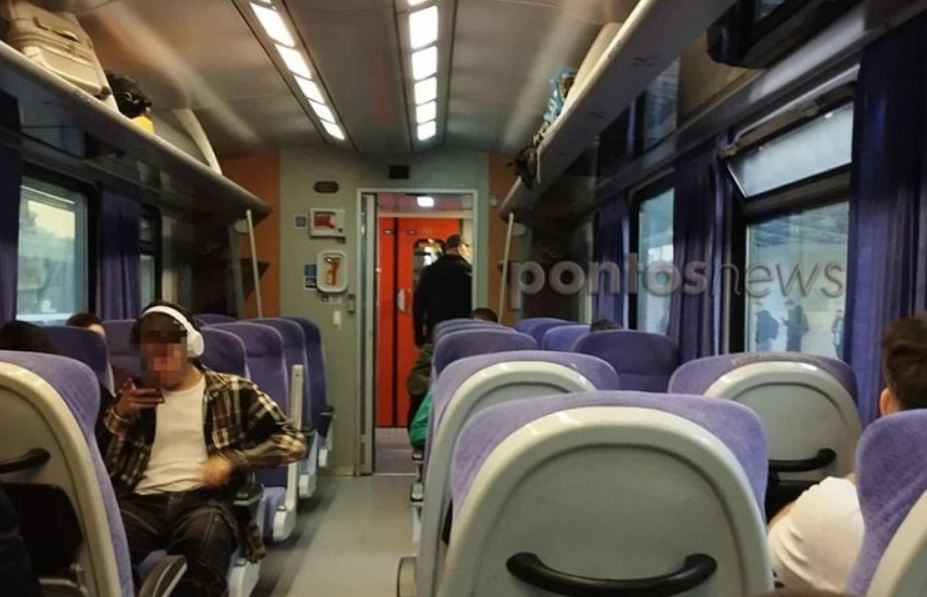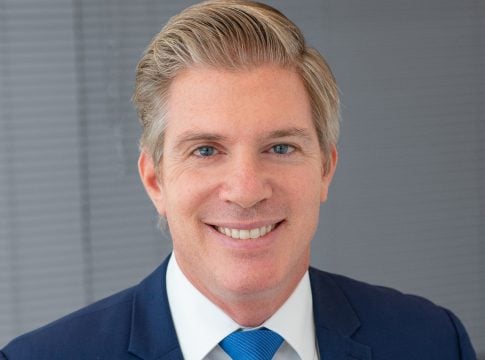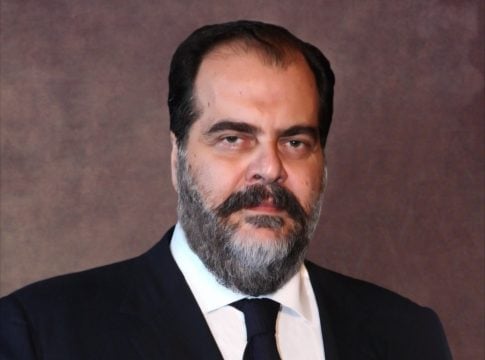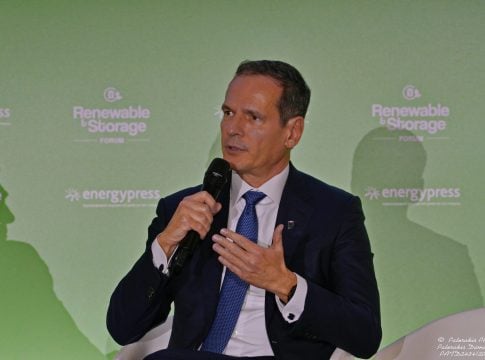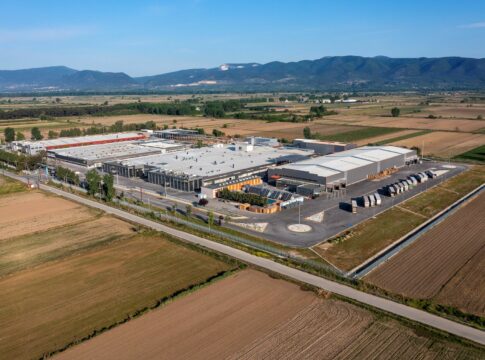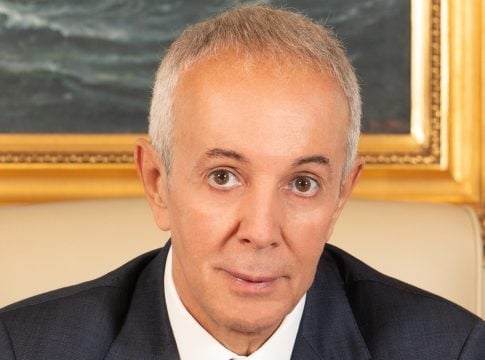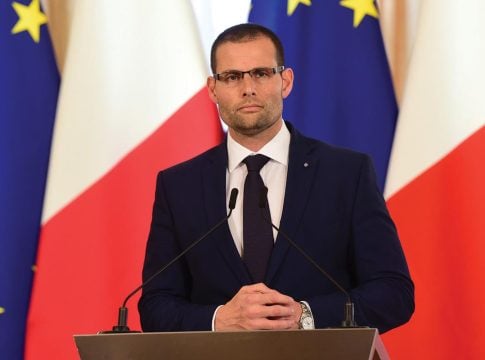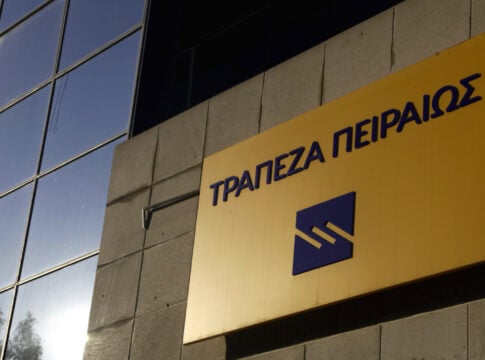“I am one of the citizens of Athens who feel that we deserve a better city,” the new Mayor of Athens, Haris Doukas, said in an interview with “Naftemporiki”.
“A clean and safe city and the upgrading of the school infrastructure are among the main priorities,” he underlined and added: “We want vibrant and safe neighborhoods.”
Haris Doukas objects to “showcase projects” and stresses the need for substantial projects that will have been thoroughly planned with the view to improving the citizens’ life. “From now on, all projects will be implemented based on thorough planning, study and maturity, focusing on the well-being of the citizens.”
The full interview with Michalis Psilos follows:
According to a European Commission survey of 84 cities, the citizens of Athens were the least satisfied with their city. How are you planning to change it?
I am also one of the citizens of Athens who feel that we deserve a better city. But I do not intend to be an observer of an inevitable course of decline. I fully understand that the challenges are numerous and the road is difficult. However, I believe that we can achieve a lot and above all raise the bar of our expectations with the constant communication and participation of the citizens, the cooperation with all entities and the utilization of the available resources.
The success in this effort will not be the result of my own actions as a Mayor, but of the collective effort of all the residents of Athens.Citizens are the soul of this city
Citizens are the soul of this city, and through cooperation and solidarity, we can overcome the difficulties and build a more resilient, humane and creative city.
What are your immediate priorities? Do you have a specific schedule? In the first 100 days for example, will the citizens see any changes?
I have reiterated that one of the reasons I assumed that position was to change the belief that nothing can change in this city.
From the very first month of my mandate, a clean and safe city, as well as the upgrading of school infrastructure, are issues that constitute top priorities.
Pilot recycling program
Regarding cleanliness, we are in the process of redesigning the waste collection routes, while at the same time we are proceeding with the implementation of a pilot recycling program in areas with intense restaurant and hotel services activity. The municipality of Athens has one of the lowest recycling rates (about 7%) and one of the highest municipal fees among the municipalities of Attica. The expansion of the brown bin for organic waste throughout the city will lead to savings of 2.5 million euros per year, money which could be used, for example, in the reduction of municipal fees.
In Athens there is a terrible problem with the accommodation. New couples cannot find a place to live. AirBnb also makes rentals very expensive. What are you planning to do in this sector?
What I can say with certainty is that the new municipal authority will not turn a blind eye to this unprecedented housing crisis, a complex challenge that requires cooperation, innovation and commitment from all relevant bodies.
On our part, we will use every means at our disposal and we want to cooperate with the State for the necessary implementation of the existing housing programs.
At the same time, we are working to create a comprehensive and reliable database with the available rooms for exploitation and find the necessary resources, so that the renovation of the houses can proceed immediately. These houses can then be made available, at a low rent, for housing vulnerable families, young couples and the elderly.
In addition, we seek cooperation with short-term rental platforms, so that, in connection with the necessary carrying capacity studies, tourist flows are dispersed throughout the municipality and do not overburden specific areas.
There are many complaints about the safety of citizens, especially in areas and neighborhoods where it is dangerous to walk at night. What measures are you considering?
Our approach to safety and public spaces is based on three key elements: lighting, cleanliness and vibrancy. Our goal is to ensure that no neighborhood is neglected or dark, and that they are attractive and accessible to all.
We are already working to improve the lighting, while the strengthening of the Municipal Police is ongoing and our goal is to immediately double the approximately 200 police officers currently on the streets and neighborhoods of the city. The citizens of Athens will soon see noticeable changes in the area of security.
Your program includes an “energy poverty” office. What is its goal?
Our pre-election commitments were not false promises. Despite the obstacles, we continue with the implementation of these commitments.
The establishment and operation of the Office for Combating Energy Poverty has already been a decision of the municipal council since last week.
The Office for Combating Energy Poverty aims to create an effective mechanism for identifying, informing and finding ways to practically support energy-vulnerable households.
This is the first step in planning a holistic response to energy poverty, social inequalities and the climate crisis. Other actions will soon follow, such as the establishment of an energy community and the optimal utilization of energy production from renewable sources, for the benefit of our weaker fellow citizens.
“Athens must become a Green city” – You have committed to planting 5,000 new trees each year. When will this program start?
The green social contract we co-signed with the citizens of Athens has already been activated. In the first 30 days of our term, we have planted more than 300 trees and I personally participated in some of these plantings.
At the same time, we have already designated 1,500 fully mapped points, for the planting of the same number of trees. These tree plantings are scheduled to start in the next few weeks.
It is important to emphasize that in the next municipal council, the Green Regulation is passed, with strict specifications for the protection of the green, while for the first time the regulation adopts a very specific and strict protocol for tree planting.



